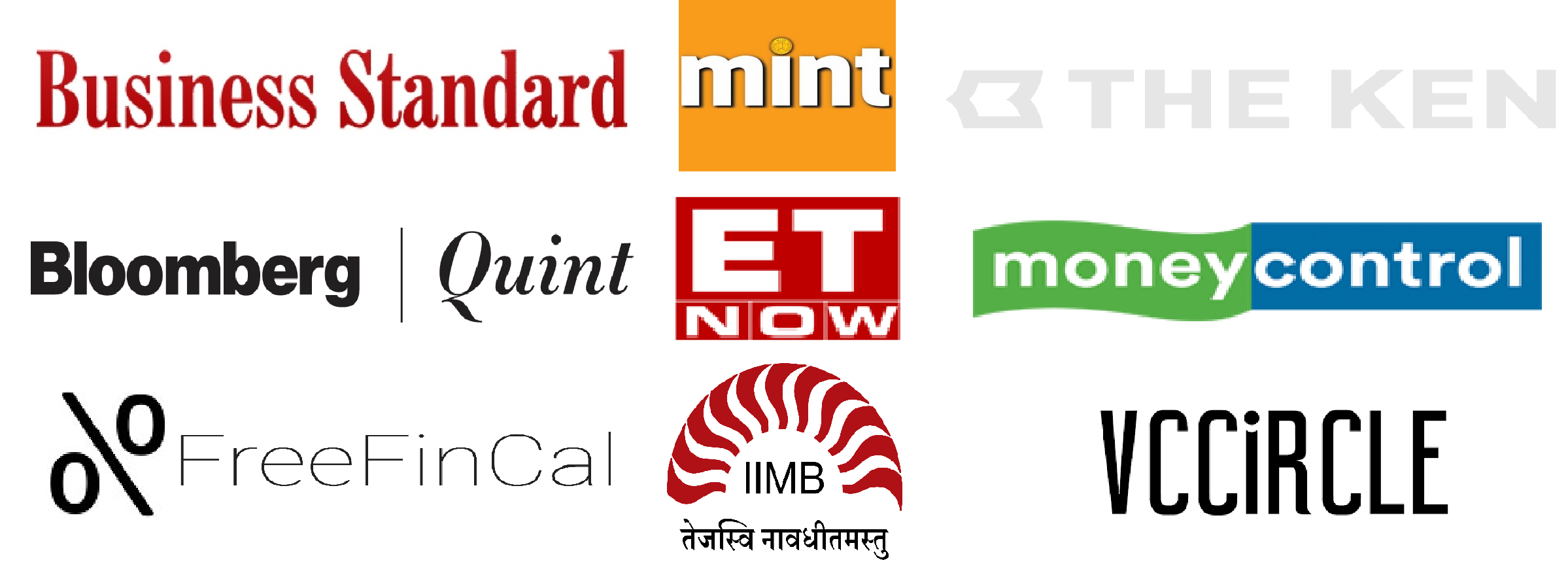
False statements against Passive Index Funds in India
It would take too long to explain each of these points, and I have covered several of these points in detail in previous articles. So, this post is just a list of such false statements, starting with the most incorrect statements:
- Active investors, on the average and net of costs, beat the index (Note: This is first in the list since it is mathematically guaranteed to be always false)
- In some years, active investors, on the average and net of costs, beat the index (Note: This is second in the list since it is also mathematically guaranteed to be always false)
- Active MF managers investing in their own fund shows that they are likely to beat the index
- Most investors in India invest in Active MFs and that proves that it makes sense to invest in Active MFs
- Almost all SEBI Registered Investment Advisers (RIAs) recommend Active MFs and that proves that it makes sense to invest in Active MFs
- You need alpha to be able to earn a high enough return to be able to retire and hence you should invest in Active MFs
- High fees of an Active MF do not matter if the fund manager has beaten the index in the past
- Knowledgeable investors should invest in Active MFs and novice investors should invest in Passive Index Funds
- Active MFs on the average beat the index
- Active Midcap / Smallcap MFs on the average beat the index
- Active MF managers who have beaten the index in the past are likely to beat the index in the future. So it is easy to pick Active MF managers who will beat in the index in the future
- RIAs are able to pick Active MFs who will beat the index
- Active MFs provide downside protection in case of a fall in the stock market
- RIAs are on the average able to able to pick stocks that will beat the index
- Portfolio Management Services (PMS) are on the average able to beat the index
- Factor Funds (e.g. Momentum, Quality, Low-Volatility, Value Funds) are Passive Index Funds
- PMS that charge a 0% Fixed-Fee and a 20% Profit-Share above a Hurdle of 8% are charging a fair fee and hence it is ok to invest in them
- Long-short Alternative Investment Funds (AIFs), on the average, generate alpha
- There is no perfectly constructed Passive Index Fund (or perfectly passive investor) so it is ok to be an active investor and invest in Active MFs / PMS / AIF
- Passive Index Funds invest in past winners and ignore future winners
- Factor Funds (e.g. Momentum, Quality, Low-Volatility, Value Funds) generate alpha
- If there were no active investors, then the market price would not be right and hence there should be active investors and hence you should invest in an Active MF / PMS / AIF
- The ‘Grossman-Stiglitz Paradox’ proves that there will be some Active MF / PMS / AIF managers who will beat the index and hence you should invest in the best Active MFs / PMS / AIF
- Market Cap weighted indices give higher weights to over-valued stocks and lower weights to undervalued stocks and hence it is easy to beat a market cap weighted index
- In some decades, Active MFs, on the average, beat the index. Hence it is ok to invest in Active MFs. (Note: It is rare but theoretically possible that in some decades, Active MFs, on the average, beat the index. But it does not mean a permanent and net benefit for investors in Active MFs. So, it is a statement that is saying something very narrow and almost irrelevant but pretends to be saying something very general and important. A much simpler example of such a statement is “Fund Manager X beat the index over the last 10 years” which is a very narrow and almost irrelevant statement since if there were 100 monkeys randomly picking stocks, then due to randomness many monkeys would beat the index.)
Avinash Luthria is an hourly-fee financial planner and SEBI Registered Investment Adviser (RIA) at Fiduciaries.in
Posted on 11 July 2022

The Ten worst investment products / strategies
Crypto is the worst investment while even sensible investors fall for Active MFs
These are the ten worst investment products / strategies starting with the most destructive ones. While some people may accidentally benefit from these investments, they will harm a majority of people who use them. I have written in the past in Mint, Business Standard, The Ken etc about the flaws in a majority of these investment products / strategies. So, I will not go into the details here and instead, I will link to previous articles directly / indirectly on this topic. This list excludes meta bad investment strategies such as allocating a very high proportion of your net worth to equity / real estate. It also excludes products and services that are unambiguously illegal.
Crypto: Crypto (e.g. Bitcoin) tops the list as the worst investment products. I am hoping that this is sufficiently obvious and it makes more sense to focus on the less obvious items in this list, so let’s not waste time discussing this.
Futures & Options: Even if one ignores the likely thousands of crores in losses that individual investors as a whole incur in Futures & Options, the brokerage commissions on these trades itself transfers thousands of crores each year from individual investors to stockbrokers. To get individual investors addicted to trading, some stockbrokers offer zero brokerage commission on certain stock trades.
Technical Analysis: Speaking colourfully, a Nobel Prize was awarded for work more than half-a-century back that Technical Analysis is to rational investing, what astrology is to finding a compatible spouse.
Peer-to-Peer Lending: It is because Peer-to-Peer Lending is so risky that, RBI has limited your total investment in it to Rs 50 lakhs.
Individual Credit Risk: Why do you assume that you are smarter than banks in assessing which risky companies to lend money to, for example via Non-Convertible Debentures? Further, banks can diversify this risk more easily than you can, so taking under-diversified credit risk is irrational.
Structured Products, PMS (Portfolio Management Services) and Long-Short funds: It is because these products are so risky that SEBI has insisted on a minimum investment in each such investment of Rs 10 lakhs, Rs. 50 lakhs and Rs 1 crore, respectively. Since Active Mutual Funds (MFs) on the average are unable to beat the index, there is no good reason to believe that a different regulatory structure will allow mangers to beat the index on the average. This is why there is not even one PMS in India that charges fees only if it is really able to outperform the index, for example net-of-taxes and by refunding performance fees if it subsequently underperforms the index on a cumulative basis.
Buying individual shares: What reason do you have to believe that you understand the company better than the promoters / founders who have inside information about the company and can legally benefit from that inside information? The same issue applies to buying baskets of individual shares. This problem is even worse while buying individual unlisted shares because there is no visible market price for them.
Insurance Investment Products: In the ballpark of Rs 25,000 crores of commissions is deducted each year from people’s savings in insurance investment products. This is even without counting another very large amount which is deducted each year from such products which goes to the shareholders and employees of insurance companies.
Regular Plans of MFs: Significantly more than Rs 10,000 crores of commissions is deducted from the savings of MF investors each year. And most investors do not know that this is happening each year. Most investors assume that there may be a one-time commission which is not being deducted from their investment. Assuming that 1% is being deducted from your investment each year in the form of commission, then over 30 years, you have lost 26% of your investment. The amount that you lose in MF commissions over 30 years may be significantly more than the value of the apartment that you live in. (Article in The Ken that is behind a paywall - 'The Two-Headed Goliath - Mutual Funds and their Distributors')
Active MFs: Active MFs on the average are unable to beat the index. So individual investors are taking the risk of underperforming a low-fee index fund without being compensated for that risk. Hence, the thousands of crores of profits each year of the Active MF Asset Management Company industry is coming from the pockets of individual investors. This also applies to Factor Funds / Smart Beta funds which are really Active MFs that are marketed as Passive Index Funds. Since even sensible investors fall for Active MFs, this is an article about Emotional Arguments Against Index Funds an article about Relevant Passive Index Funds ; a podcast episode including about Index Funds ; an article about Understanding the S&P Indices Versus Active Funds India report ; an article about Why % of AUM RIAs will not primarily recommend Passive Index Funds and a podcast video about Why % of AUM RIAs will not primarily recommend Passive Index Funds .
As the mania around Crypto and deeply unprofitable Unicorns vividly illustrates, it is even more difficult to stay disciplined when everyone around you is getting rich fast without deserving it. So, keep repeating to yourself, as Rudyard Kipling wrote, addressing his son ‘If you can keep your head when all about you are losing theirs… you’ll be a man, my son’.
Avinash Luthria is an hourly-fee financial planner and SEBI Registered Investment Adviser (RIA) at Fiduciaries.in
Posted on 28 November 2021
